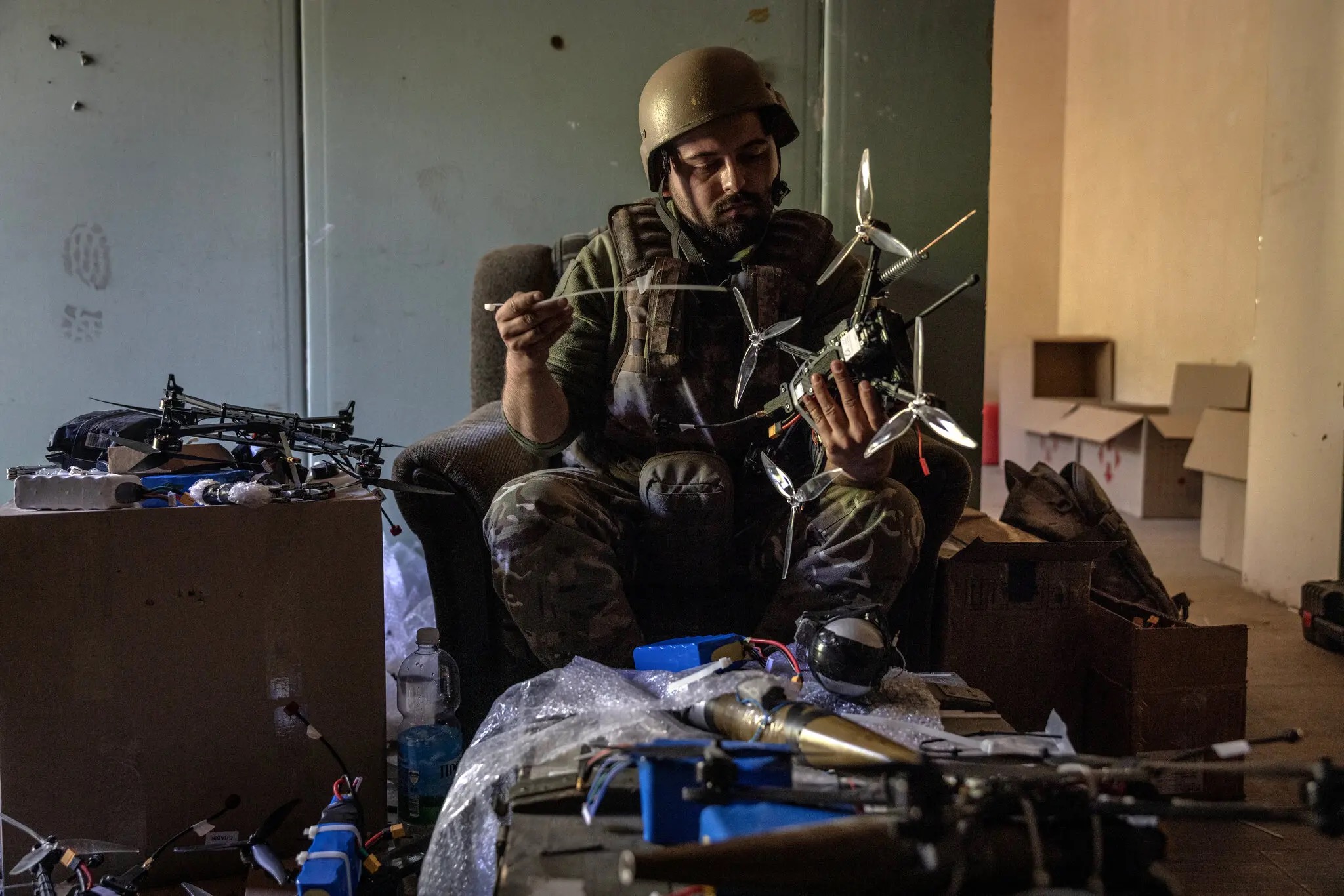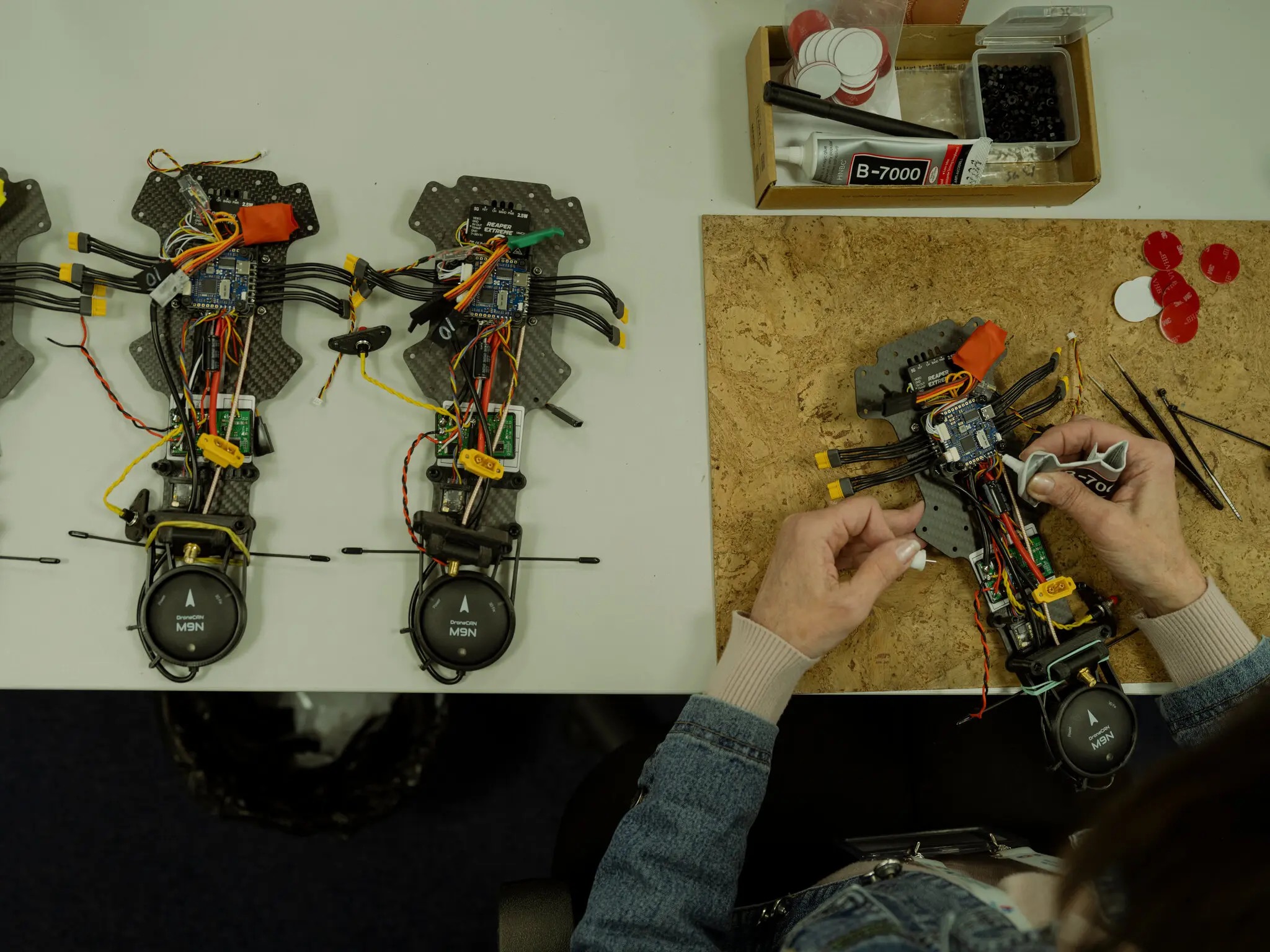China limits civilian drone exports starting September 1 — country aims to prevent use by foreign military or terror orgs
If you want assault drones you will need to pay full price.

China will adjust its civilian drone export rules on September 1, reports the Associated Press. Starting from that date, policy changes will prohibit the export of civilian drones that can be used for military or terrorist aggression. China’s Ministry of Commerce says it hopes the new controls will also prevent the use of drones in “the proliferation of weapons of mass destruction.”
It is difficult to know precisely how Chinese officials will decide which drones are potentially valuable for foreign military or terror organizations—wouldn’t they all be helpful to some degree? However, the source indicates that export control lists will feature IR imaging, laser guidance, and high-precision inertial measurement devices.
While some export controls are tightened, others will become looser. Specifically, AP says the Chinese have decided to remove temporary restrictions on exports of long-range civilian drones. Last year, these were put on China’s restricted export list, ostensibly to prevent their use in the Russia—Ukraine war. With the ongoing war, it doesn’t seem wise to lift restrictions now.
The use of drones in the Russia – Ukraine war will perhaps be looked back upon as one of the distinguishing characteristics of this brutal conflict. The devices started as visual scouting aids, but in the asymmetric battle we have seen play out, they have also become valued in offense. Social media is full of drone-eye-views of bombs being dropped or ‘suicide’ drone cameras cutting to static as they hit their target.
NATO-aligned powers have sought to restrict Russian access to the latest technologies, like drones, as they seek to punish the aggressor. However, countries with other alliances are more challenging to steer.
China is a prime example of a country that is suspected of supplying drones or related tech to Russia as a natural totalitarian communist state ally. AP also highlights China’s underhand trade with Russia, helping to keep its war machine grinding forward. Moreover, it says that Chinese entities are even on the ground in Russia “working to jointly produce unmanned aerial vehicles.”
We also know that Ukraine has had to endure skies full of Shahed ‘suicide’ drones, sourced from Iran, with the BBC reporting 89 were shot down on the way to Kyiv last night. North Korea is also suspected of trading arms with Russia during the ongoing Ukraine war.
Get Tom's Hardware's best news and in-depth reviews, straight to your inbox.
Drones aren’t just taking to the skies during the war. Ukraine has had success in asymmetrically using seaborne drones to attack Russian ships and bridges. Perhaps this has been even more of a success than the air drone campaign, as Putin’s Black Sea fleet has lost 26 vessels since the start of the war and sheepishly retreated East.
This Chinese drone export rule adjustment news comes at an interesting time. The U.S. business of DJI, a Chinese company that is one of the biggest drone producers in the world, has been in danger of completely evaporating due to the House of Representatives drafting legislation known as the ‘Countering CCP Drones Act.’ However, the Chinese firm has a reprieve, for now, as the U.S. Senate Armed Services Committee didn’t include the Act in its recently released version of the 2025 National Defense Authorization Act (NDAA).

Mark Tyson is a news editor at Tom's Hardware. He enjoys covering the full breadth of PC tech; from business and semiconductor design to products approaching the edge of reason.
-
artk2219 Reply
That is interesting, i mean at the end of the day it isn't the end of the world because you can still buy all of the individual components and assemble the parts. Any major organization that will need to keep buying these could get that production line setup or ramped up in relatively short order. It does show that they've realized that these exports can most definitely be used in ways that don't align with their interests.Admin said:China will adjust its civilian drone export rules from September 1. Starting from that date, policy changes will be enacted to prohibit the export of civilian drones that can be used for military or terrorist aggression.
China limits civilian drone exports starting September 1 — country aims to prevent use by foreign military or terror orgs : Read more
